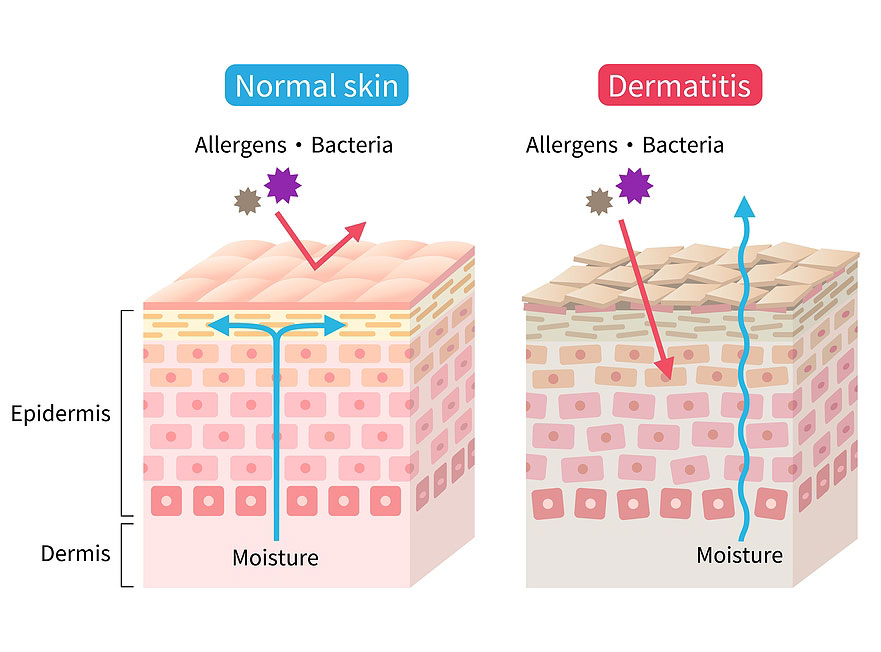Contrary to what you might think, Eczema isn’t one skin disease. Instead, it’s a family of disorders that refer to conditions when skin becomes dry, inflamed, itchy, red or discolored. Eczema has varying symptoms affecting people differently.
Types of Eczema
The National Eczema Association identifies different types of eczema:
- Atopic dermatitis: a common form of eczema which causes inflammation, dryness and itchy skin. While typical in small children, it can occur at any age.
- Contact dermatitis: also called allergic contact dermatitis, this form of eczema is brought on by environmental triggers.
- Dyshidrotic eczema: this type of eczema dries out the skin and can cause a burning sensation, rashes and blisters.
- Nummular eczema: also called nummular dermatitis, this form creates small, rounded lesions all over the body, but especially on arms and legs.
- Seborrheic dermatitis: an inflammatory form of eczema which affects your scalp, face, and chest.
- Stasis dermatitis: a skin discoloration on the legs from associated leg swelling.
It is possible to have more than one type of eczema on your body at the same time.
Eczema is Hereditary
Although atopic dermatitis is hereditary, not everyone with the inherited gene develops it during their lifetime. For you to develop eczema, you’ll need both genetic and environmental factors, including:
- Being prone to allergies
- Having an immune system dysfunction
- Suffering from an endocrine disorder
- Living in an urban area with pollution
More important facts
Eczema is a chronic condition, but in most cases, symptoms can be controlled, and patients may enjoy long periods of remission. It may look and feel unpleasant during a flare up, but it’s not contagious. You cannot catch it from someone who has it, nor can they catch it from you.
Yes, it itches, but scratching makes it worse. And, unfortunately, it can lead to other skin problems. For example, by disrupting the barrier between your skin and the environment, you are allowing your skin to be more prone to infections. These may include viral warts and even bacterial infections.
Diagnosing eczema in the early stages, as well as understanding exactly which type you have, is critical to finding an effective treatment for you.
Know your triggers
Flare ups often occur in response to environmental factors, and contact with allergens is the most common trigger. Consider these triggers:
- Food allergies
- Chemicals found in certain cleaning products, body soaps, laundry detergents
- Changes in climate, such as a shift from humid to dry conditions and vice versa
- Rubbing against irritating materials such as wool, latex or plastic
- Environmental irritants such as dust, dirt, or air pollutants
- Excessive sweat
- Insect bites
- Stress
We’re here to help
Although there isn’t a cure, eczema can be managed. If you’re struggling with eczema, please feel free to contact us to make an appointment to address any of your skin issues.

